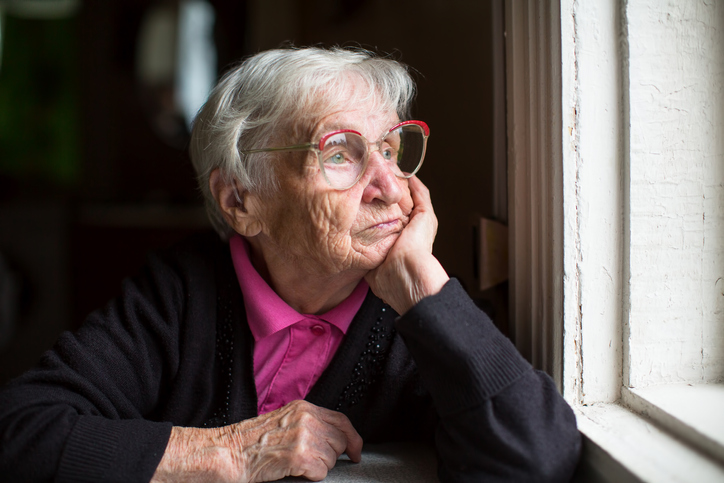When Abuse, Neglect or Violence Happens, by Tricia Hendry
When Abuse, Neglect, or Violence Happens Sadly, there can be instances when abuse, neglect, or violence happens to vulnerable people. Those with health or disability challenges, or who are elderly or very young, can be especially vulnerable if they rely on others for their wellbeing and safety. But, in some situations, carers can also be vulnerable and may experience harm from the person they support.
What should I look out for? Watch for any action, or a repeated action, or any lack of action when it’s needed, that causes harm or distress to a vulnerable person. This might be the actions of others who share caring/support responsibilities for the person you support. Or the negative actions of relatives, friends, or support professionals. It might be that the person being supported is harming their carer, or that family, friends, or support professionals are taking advantage of the carer in a harmful way.
Abusive behaviour can be:
- Psychological (e.g. bullying, threats, humiliation, mocking.)
- Physical (e.g. pushing, kicking, restraining, not providing medication properly, violence)
- Neglectful – not meeting someone’s basic needs (e.g. safety, food, social contact, provision of correct medications)
- Sexual (e.g. inappropriate sexual comments, unwanted touching, or sexual acts without consent.)
- Financial (e.g. Illegal or improper use of money, property, or other assets of a vulnerable person.)
- Institutional (e.g. If an organisation disregards a person’s rights or causes harm.)
- Exploitative – being taken advantage of (e.g. using a vulnerable person’s resources freely, disrespecting their privacy, making decisions to benefit others and not the vulnerable person.)
- Discriminative – when someone’s treated badly or unequally because of their age, race, gender, sexual orientation, or religion.
Signs to Look Out For:
- General Abuse, Neglect and Violence:
- Are you OK? How to support someone.
- Sexual Abuse
- HELP Auckland
- HELP Wellington
- Financial Abuse www.govt.nz/browse/law-crime-and-justice/abuse-harassment-domestic-violence/financial-abuse/
- Discrimination or Institutional abuse – Check out the NZ Code of Rights for all those with health or disability challenges https://www.hdc.org.nz/your-rights/the-code-and-your-rights/
Do you think the person you support is being harmed? Don’t hesitate to get help and support to end this harm. Get some confidential guidance and support:
- Phone the Family Violence Information Line at 0800 456 450 – 7 days, 9am – 11pm.
- Phone SHINE at 0508 744 633 – 7 days, 9am – 11pm.
- Phone SHAKTI at 0800 742 584 – every day, 24 hours. (Support services for women, children, and families of Asian, African and Middle Eastern origin.)
- Speak to the person’s GP, social worker, or family support worker.
- Rainbow Youth support
- If there is immediate danger to someone’s safety, phone 111.
If elder abuse is suspected, Age Concern provides excellent help, information and support.
-
- Information
- Local support in your area
For sexual abuse or assault support:
-
- Auckland HELP http://helpauckland.org.nz
- Wellington HELP www.wellingtonhelp.org.nz
- Rape Crisis around NZ http://rpe.co.nz/find-a-sexual-assault-support-centre-near-you/
If you are worried about a child’s wellbeing:
o Contact The Ministry of Vulnerable Children, Oranga Tamariki. www.mvcot.govt.nz/worried-about-a-child-tell-us/ or phone 0508 326 459.
Are you being harmed yourself? The safety and wellbeing of carers matters too. Some carers can experience violence or abuse by the person they support. Many don’t know how to manage it and some choose to keep it a secret. Ask yourself, Does the person I care for behave in a way that causes me physical or emotional pain or injury? Or some other kind of harm? (See the types of abuse listed above.) Do I think they don’t realise they are hurting me, but they are? Am I too scared to speak out?
Get some confidential guidance and support as soon as you can:
- Phone Carers NZ at 0800 777 797 (weekdays, 9-5)
- Talk to your GP, social worker, or family support worker.
- Phone the free Family Violence Information Line at 0800 456 450 7 days, 9am – 11pm.
- Phone SHINE at 0508 744 633 – 7 days, 9am – 11pm.
- Phone SHAKTI at 0800 742 584 – every day, 24 hours. (Support services for women, children, and families of Asian, African and Middle Eastern origin.)
- Rainbow Youth support services
If you have been injured or are feeling threatened, seek immediate help. Contact your GP, Medical Centre or hospital, or a neighbour, a trusted friend, family member or support worker.
If there is ever immediate danger to your safety, or that of others, phone 111.
Do you need help for your own behaviour? Caring can be extremely stressful and, at times, some carers themselves behaving in unacceptable ways that harm the person they support. If this sounds like you, reach out for support and help as soon as possible.
-
- Speak honestly with your GP, or arrange to see an experienced counsellor. Click here to find a GP or counsellor near you. www.mentalhealth.org.nz/get-help/in-crisis/find-a-gp-or-counsellor/
- Contact It is OK to Ask for Help at 0800 456 450 (9am – 11pm every day) www.areyouok.org.nz
- Phone Man Alive at 0800 826 367 for anger management support www.manalive.nz
